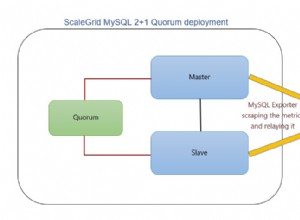Non esiste un supporto integrato per JOIN ... USING nella classe di registrazione attiva. La soluzione migliore sarebbe probabilmente cambiare il join() funzione in modo che sia così (il file è system/database/DB_active_rec.php nel caso non lo sapessi)
public function join($table, $cond, $type = '')
{
if ($type != '')
{
$type = strtoupper(trim($type));
if ( ! in_array($type, array('LEFT', 'RIGHT', 'OUTER', 'INNER', 'LEFT OUTER', 'RIGHT OUTER')))
{
$type = '';
}
else
{
$type .= ' ';
}
}
// Extract any aliases that might exist. We use this information
// in the _protect_identifiers to know whether to add a table prefix
$this->_track_aliases($table);
// Strip apart the condition and protect the identifiers
if (preg_match('/([\w\.]+)([\W\s]+)(.+)/', $cond, $match))
{
$match[1] = $this->_protect_identifiers($match[1]);
$match[3] = $this->_protect_identifiers($match[3]);
$cond = $match[1].$match[2].$match[3];
}
// Assemble the JOIN statement
$type.'JOIN '.$this->_protect_identifiers($table, TRUE, NULL, FALSE);
$using_match = preg_match('/using[ (]/i', $cond);
if ($using_match)
{
$join .= $cond;
}
else
{
$join .= ' ON '.$cond;
}
$this->ar_join[] = $join;
if ($this->ar_caching === TRUE)
{
$this->ar_cache_join[] = $join;
$this->ar_cache_exists[] = 'join';
}
return $this;
}
Quindi, puoi semplicemente usarlo nel tuo codice join('table', 'USING ("something")')
Tuttavia, potresti voler estendere la classe invece di modificarla in modo da non dover fare la stessa cosa più e più volte quando aggiorni il tuo CI. Dai un'occhiata a questo articolo o questo (o cerca su google) se vuoi farlo invece.
Oppure, se non vuoi affrontare tutti quei problemi, puoi scrivere una semplice funzione di supporto che può fare la stessa cosa.
<?php if ( ! defined('BASEPATH')) exit('No direct script access allowed');
function join_using($table, $key)
{
$CI = get_instance();
$join = 'JOIN '. $table .' USING (`'. $key .'`)';
return $CI->db->ar_join[] = $join;
}
Successivamente, carica l'helper e chiama la funzione in questo modo join_using('table', 'key') . Quindi produrrà lo stesso risultato che avresti con l'originale join() tranne che questo ti darà USING invece di ON condizione.
Ad esempio:
// $something1 and $something2 will produce the same result.
$something1 = $this->db->join('join_table', 'join_table.id = table.id')->get('table')->result();
print_r($something1);
join_using('join_table', 'id');
$something2 = $this->db->get('table')->result();
print_r($something2);




